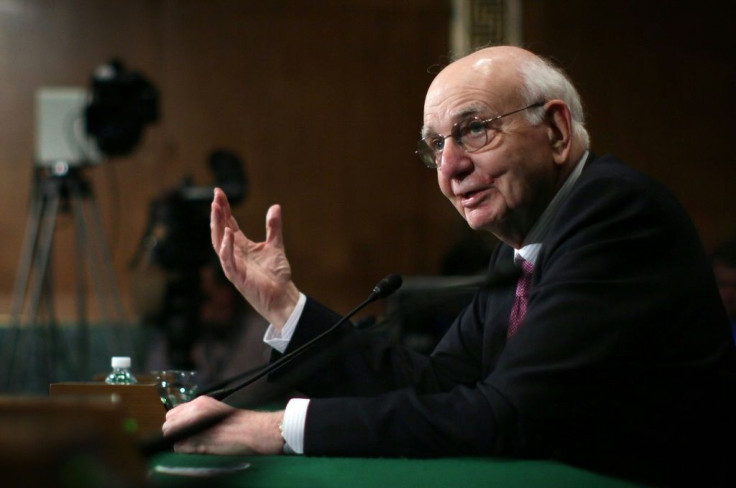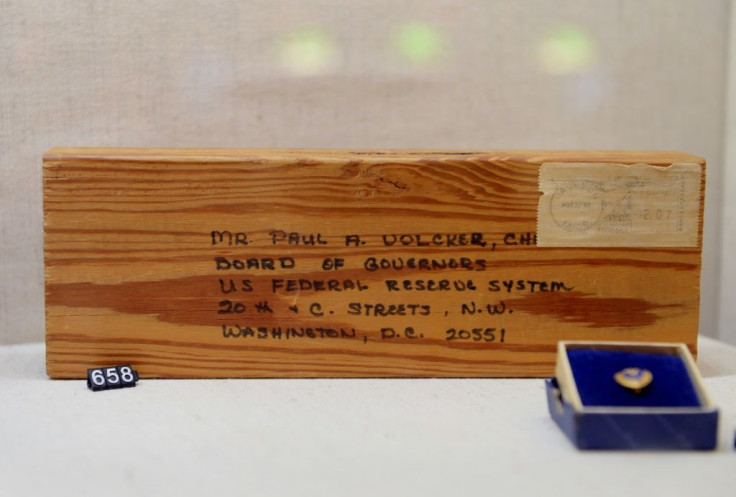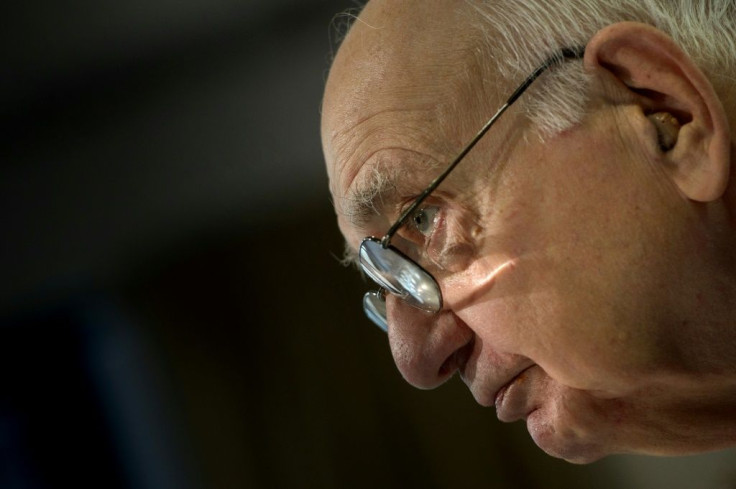Paul Volcker, US Fed Chief Who Led War On Inflation, Dead At 92

Former US Federal Reserve chairman Paul Volcker, who tackled American inflation in the 1970s and 80s and later lent his name to landmark Wall Street reforms, has died in New York.
Volcker, who headed the US central bank from 1979 to 1987, was 92. The cause of his death Sunday was complications from prostate cancer, his daughter Janice Zima told AFP.
Tall and known for his dead-pan humor, Volcker forged a career as a financier and fiercely independent public servant who wielded monetary policy with authority and acumen.
A Democrat, he advised American leaders of both major parties, starting with Richard Nixon in 1971 at the US Treasury, where he helped guide the US exit from the gold standard.
His tenure ended with Barack Obama as Volcker promoted stricter banking regulation in the wake of the 2008 global financial crisis.
But it was as Federal Reserve chairman, first under Jimmy Carter and then Ronald Reagan, that he left his deepest mark, albeit during difficult times, and earned the respect of economists around the world.
"I am deeply saddened by the passing of Paul Volcker. He believed there was no higher calling than public service," current Fed chairman Jerome Powell said in a statement.
"His life exemplified the highest ideals -- integrity, courage, and a commitment to do what was best for all Americans. His contributions to the nation left a lasting legacy."
After announcing his candidacy for the White House in 2015, Donald Trump expressed admiration for Volcker, saying "there was something very solid about him."

Carter said Monday he was "deeply saddened" to learn of Volcker's death, calling him "a giant of public service," suggesting his actions may have helped cost Carter a second term but were still "the right thing to do."
President Barack Obama, House Speaker Nancy Pelosi and Bank of England Governor Mark Carney also issued statements paying their respects to Volcker.
Amid the oil crisis in the late 1970s, the American economy suffered rampant inflation. Carter bucked the advice of aides who said installing Volcker at the Fed would mean "tough medicine."

With inflation -- which Volcker described as too much cash chasing too few goods -- hitting an eye-watering 14 percent annually, he made no secret of his plans to raise interest rates.
"I don't think there is any feeling or any evidence around at the moment that the economy is suffering grievously from a shortage of money," Volcker testified during his Senate confirmation.
With Volcker at the helm, the Fed raised interest rates from 11 percent to 20 percent (today, by comparison, they are in a range of 1.5 to 1.75 percent).
Such drastic tightening was especially painful and hit during a recession. Auto dealers sent him car keys in coffins. Building contractors mailed him wood planks they could not use, since homes were not selling.
Farmers drowning in debt drove tractors to encircle the central bank's offices.
But the hard-nosed Volcker gave no ground. "He becomes intellectually stimulated by a crisis," his late wife Barbara said, according to the author William Neikirk.
The firm stance paid off, with inflation falling to three percent by 1983. Along with the Iranian hostage crisis, it also helped cost Carter his chances at reelection.
Volcker left the Fed in 1987 and joined James Wolfensohn's investment firm. Wolfensohn later became president of the World Bank.
The former Fed chief reemerged on the public scene 20 years later during the global financial crisis as an Obama advisor.
A critic of banks' high-risk trading and their executives' gigantic pay packages, he proposed what would become known as "the Volcker rule," restricting so-called proprietary trading.
The regulation was blasted by Frank Keating, then head of the American Banking Association, as too complex and onerous for implementation -- and came under fire again in the anti-regulation era of President Donald Trump.
The ABA on Monday offered its "deepest condolences," saying Volcker left "a giant legacy of dedicated public service."
A grandson of German immigrants, Volcker was born in 1927 in Cape May, New Jersey, developed a love of fly-fishing and studied at Princeton and Harvard.
A father of two, he remarried at age 83 in 2010, taking his long-serving assistant as his bride, 12 years after the death of his first wife, Barbara.
© Copyright AFP 2024. All rights reserved.





















